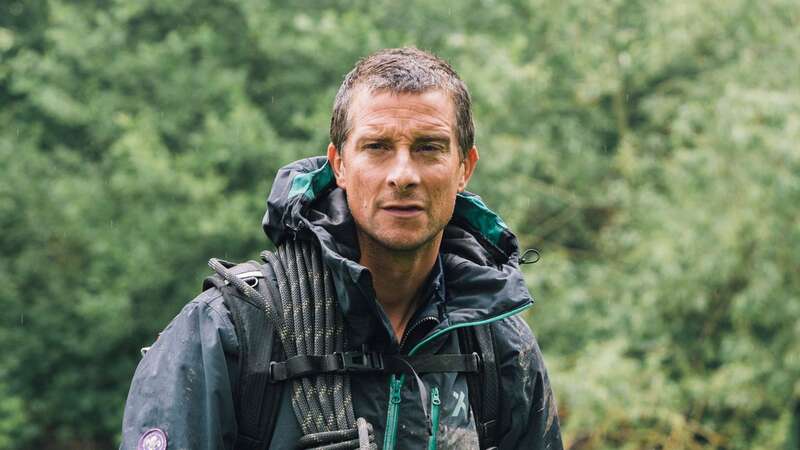
In a challenging world, every one of us needs to give our emotional health genuine attention. Young people in particular are engaged in some serious and anxiety provoking issues, including climate change, global conflicts and artificial intelligence (AI). I hope that by sharing some of my tips and techniques for mental resilience will help them to build an emotional toolkit that can help.
There is an anxiety epidemic among young people. Most of us feel anxious at times but anxiety is not a sign of weakness - it’s a natural reaction to threat. So how can we equip young people to thrive when they get so much exposure to anxiety provoking circumstances? We need to give them practical, accessible tools to deal with these situations and to inspire them to seek out things that give them mental strength - it is so vital for being ready for life.
I want to help young people to feel empowered and equipped mentally for the struggles of life. We all struggle at times but when you are alone it makes everything 10 times worse. I want to give them a bit of encouragement and hope and to let them know that they are not alone in the battle.
There are times in all of our lives when fear creeps in and confidence sneaks out the door, and it’s something that has often happened to me too. Courage certainly isn’t the absence of fear – it is our ability to deal with it. Gaining the confidence to handle difficult feelings and sharing the struggle with trusted friends or family are so important.
On Everest, we had four climbers die - two fell to their deaths and two died of the cold. I really struggled mentally after that trip to process a lot of that. In hindsight, I don’t think I dealt with it very well.
 Queen honoured in London New Year's fireworks before turning into King Charles
Queen honoured in London New Year's fireworks before turning into King Charles
Anxiety can feel overwhelming at times but I have found that the best way to combat it is to take small positive actions that you can achieve. Real strength is being honest, and the knowledge and tools to get mentally robust are all around you if you look for them.
I have always lived by the mantra that ‘together we are stronger’. When it comes to mental fitness, that is so true. A problem shared is a problem halved. And with Place2Be’s Children’s Mental Health Week kicking off today, there’s never been a better time to start.
 Anxiety can be beaten with small positive steps, says Grylls (Getty Images)
Anxiety can be beaten with small positive steps, says Grylls (Getty Images)Build a routine
A routine takes some of the uncertainty and, therefore, anxiety out of living. We start to live by habit. What we should be doing becomes fixed in our bodies, and we end up moving from one part of our day to the next without thinking.
One study showed that children who had developed a high level of routine had far fewer instances of tantrums in school.
Routine helps us feel safer and more settled in an unpredictable world. I have some key routines in my life, like walking the dogs up a small hill early in the morning; stretching for 10 minutes while saying my prayers; working out and taking an ice bath every other day; and eating certain healthy foods.
These small things act as anchors on unpredictable days.
ACTION: Plan an after-school routine. Instead of coming home and wondering what to do, could you start by emptying your school bag and hanging up your school uniform?
Find a mentor
When I lost my father in my mid-20s, I felt so lost without someone older to chat to and to ask advice from. I missed someone who I admired and trusted, who could be there for the key life decisions I was facing as a young man.
Mentoring is not about giving control to someone else. It’s about getting better control of your own life by increasing your access to wisdom, fresh perspective and experience.
My best mentors have been people who have shared their experience, not their advice. Any action I take is entirely up to me, without pressure from them. Getting a mentor is one of the most helpful tools for growth.
 Celebrity walrus Thor swims off to Arctic after enjoying New Year break in UK
Celebrity walrus Thor swims off to Arctic after enjoying New Year break in UK
Look for people you admire. It may be a youth leader, your sports coach or a family member. Allow them to be honest. Be grateful and then get going.
ACTION : Make a ‘Helping Hand’. Draw around your hand on a piece of paper. Along each finger, write down five people you know who you might be happy to talk to. If so, why not talk to them this week?
Not everything happens for a reason
Life will always have storms. Everyone suffers. Everyone fails. Everyone loses. Often, we find ourselves asking “why?”. We rarely find an answer. In the heart of the big storms in life it’s not unusual to hear the words: “Everything happens for a reason”.
But a lot of the time, difficult things happen for no reason at all. People get sick, plans fail, nature goes crazy, disasters happen.
Instead of asking “why?” and looking for a reason for suffering, I believe we can find meaning in the suffering. Every disappointment, every struggle, can shape us and teach us for life ahead.
Often, disaster gives us a chance to grow, to change and get stronger. Storms do that. They beat us up.
But if we can hold on and stick with it, they often also leave us smarter and stronger than before.
ACTION : Cut out a cloud shape from a piece of paper and write on it a ‘storm’ that has happened to you. Now turn it over and list any of the ways you grew stronger or things you learned from that stormy time.
Stretching your fear circle
Guiding people in the wild has given me the privilege of seeing them both face and overcome their fears. Everyone’s afraid of different things and has different challenges to tackle. Escaping from fear is pointless – fear is within us. But so is courage.
Doing something every day that stretches our “fear circle” will give us a richer, freer life. By this I mean deliberately – but without putting yourself in danger – stepping into a setting that kickstarts our fear, and then staying there long enough for the fear to pass on its own. And it will.
Remember, courage is not the absence of fear, but the ability to deal with it. The only way to beat it is to face it. Then it so often shrinks at our feet.
ACTION : What could you do to stretch your fear circle and face something that makes you feel afraid? Hold a spider, have a difficult conversation with a friend, walk around your house in the dark.
Get moving
We all know physical activity has a positive effect on physical and emotional health. But, according to the National Institute for Health and Care Excellence: “It also has a positive effect on wellbeing and mood, providing a sense of achievement or relaxation and release from daily stress.”
ACTION : Do something that gets you moving and increases your heart rate. Have a kickabout at the park with friends, do some yoga with an online instructor, run up and down the stairs 10 times.
Go for it
I’ve learned that there is no perfect way to start something. You can study maps, plans and schedules hour after hour, yet be no better off.
Planning is, of course, crucial to success, but it has its limits. It won’t get rid of every obstacle along the way, like the things that we will get wrong, or bad weather. Planning can also be a form of putting things off.
It constantly pushes us away from beginning something new because we just never feel quite prepared enough.
The dread of the unknown constantly rises in our minds, and we find ourselves researching or talking about something without ever actually just going for it.
ACTION : Is there something you’ve been planning to do but still haven’t made a start on? This week, make the first small step.
- Mind Fuel For Young Explorers: Simple Ways To Build Mental Resilience by Bear Grylls & Will Van Der Hart (Hodder, £12.99) is out now.
- For more resources and support, visit childrensmentalhealthweek.org.uk
Read more similar news:
Comments:
comments powered by Disqus
































